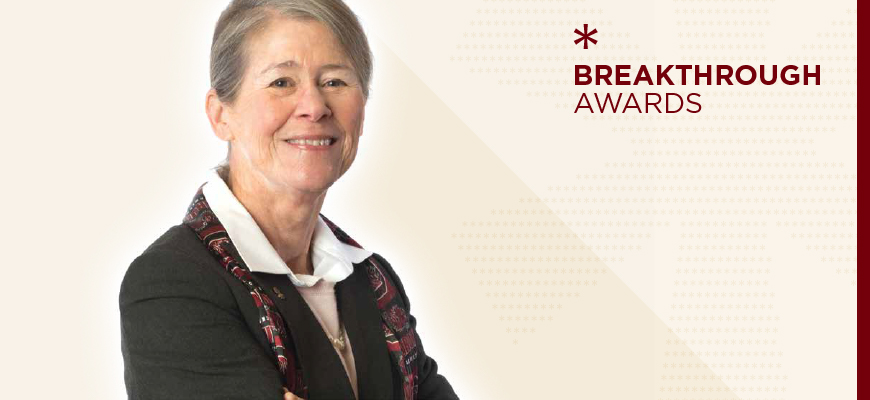
Infectious, but in a good way
Rural health researcher has trained and inspired a legion of disciples
Posted on: June 29, 2018; Updated on: June 29, 2018
By Craig Brandhorst, craigb1@mailbox.sc.edu, 803-777-3681
Getting out of the city is supposed to be good for your health — except when it isn’t.
In rural communities across South Carolina, chronic health problems are exacerbated by limited access to medical care. And the situation is even more dire among minority populations, which for a variety of reasons experience higher rates of diabetes, cancer, heart disease, stroke and other serious illnesses.
But when it comes to rural health disparities, researchers at the University of South Carolina are committed to leveling the field. Among these researchers is Janice Probst, a professor at the Arnold School of Public Health and a recipient of the university’s 2018 Leadership in Research Award.
The honor recognizes not only Probst’s own research efforts, which have been considerable, but also her role as a mentor, advocate and collaborator.
As director of the S.C. Rural Health Research Center since 2003 — and prior to that, as the center’s deputy director — Probst has played an integral role in promoting the work of other investigators in public health, nursing, medicine and other disciplines.
Dr. Probst has singularly mentored a constellation of public health scientists, sending us out to advance rural health equity using the scientific tools with which she equipped us.
Amy Brock Martin, a director of the Division of Population Oral Health at the Medical University of South Carolina College of Dental Medicine
In the process, she has procured 14 grants as either principal investigator or co-principal investigator, raised more than $18.8 million in core and leveraged funding and published more than 100 articles in peer-reviewed journals.
“During the past two years alone, the number of peer reviewed publications she has had is more than 18,” says Mahmud Khan, chair of the Department of Health Services Policy and Management at the Arnold School of Public Health. “She has remained a very active and highly productive researcher.”
Probst has supervised 47 doctoral dissertations, and she has formally mentored multiple students and junior faculty, collaborating on research projects and inviting them to join her as co-authors.
Amy Brock Martin, a director of the Division of Population Oral Health at the Medical University of South Carolina College of Dental Medicine and former deputy director at SCRHRC, is just one example.
“Her impact on research should not be measured using basic metrics such as number of manuscripts, presentations and grants that bear her name,” says Martin, who has collaborated with Probst for more than a decade. “Dr. Probst has singularly mentored a constellation of public health scientists, sending us out to advance rural health equity using the scientific tools with which she equipped us.”
But as Martin explains, Probst’s leadership is perhaps most evidenced by her dedication to her work, which inspires her peers, not just at Carolina but throughout the field.
“Her successes are due to the quality of her research as well as her professional purpose, which is laser-focused on making health better for people who lack the geographic, economic and societal advantages most Americans enjoy,” says Martin. “Her purpose is infectious.”
Share this Story! Let friends in your social network know what you are reading about